Are you considering streamlining your payroll processes but unsure where to start? A payroll outsourcing agreement can be the answer to optimize your business operations while saving time and reducing errors. With the right template in hand, you can easily outline the responsibilities and expectations between your company and the payroll service provider, ensuring everyone is on the same page. Dive into our article to discover a comprehensive letter template that will guide you through this crucial agreement!

Scope of Services
Payroll outsourcing agreements outline important responsibilities and expectations. The scope of services may include comprehensive payroll processing for employees, tax calculations, and compliance with local regulations, which can vary significantly between jurisdictions. Additionally, services might cover the issuance of paychecks or direct deposits, management of employee benefits such as health insurance or retirement plans, and meticulous record-keeping that aligns with legal requirements. Reports detailing hours worked, wages paid, and deductions made are integral to ensure transparency and accountability. Furthermore, customer support for payroll inquiries and issues, along with regular updates on changing tax laws or benefits regulations, form essential components of the overall service package, ensuring efficient payroll management.
Payment Terms
In payroll outsourcing agreements, payment terms refer to the specific conditions under which payments for services rendered are made to the payroll service provider. Payment schedules, typically expressed in monthly cycles, detail the dates by which payments are due after the completion of services, ensuring timely compensation for processing payroll for numerous employees, adherence to tax regulations, and compliance with labor laws. Moreover, fees may vary based on the size of the company, the number of employees being processed (often precise to the number of active employees, which may vary across different months), and the complexity of the payroll services offered, such as additional support for handling benefits administration or tax filings. Clear stipulations regarding late fees or interest on overdue payments ensure accountability and financial prudence in managing ongoing operational costs associated with payroll administration.
Confidentiality
Payroll outsourcing agreements often emphasize the importance of confidentiality to protect sensitive employee information. Key elements include provisions for safeguarding personal data, such as social security numbers and bank account details, which are crucial for accurate salary processing. Companies, like ADP and Paychex, implement stringent data protection measures, ensuring compliance with regulations such as the General Data Protection Regulation (GDPR) and the Health Insurance Portability and Accountability Act (HIPAA). It is vital to define terms clearly, outlining the responsibilities of the outsourcing partner in maintaining confidentiality, and the repercussions of data breaches. Additionally, specifying the duration of confidentiality obligations post-termination of the agreement can further secure sensitive information from being disclosed unintentionally.
Compliance and Regulations
When establishing a payroll outsourcing agreement, compliance with labor laws and tax regulations is essential. Companies must adhere to the Fair Labor Standards Act (FLSA), ensuring correct wage calculations, overtime payments, and employee classification, affecting payroll processing for an estimated 144 million workers in the United States. Moreover, the Internal Revenue Service (IRS) mandates accurate tax withholding and timely submission of payroll taxes, which can result in penalties if not properly managed. The outsourced payroll service must remain updated on state-specific regulations, as laws vary across 50 states, affecting areas like wage payment frequency and reporting requirements. Additionally, current compliance with the Health Insurance Portability and Accountability Act (HIPAA) is crucial for organizations handling sensitive employee data, ensuring confidentiality and security of personal health information. Regular audits by the outsourcing partner are necessary to confirm adherence to these regulations, minimizing legal risks and fostering trust between the outsourcing company and its clients.
Termination Clause
In a payroll outsourcing agreement, the termination clause outlines the specific conditions under which either party can end the contract, ensuring clarity and legal protection. Key aspects include a minimum notice period (typically 30 days), circumstances for immediate termination, such as breach of contract or non-compliance with legal regulations, and the process for the return of sensitive data (employee information, payroll records) post-termination. The clause may also stipulate obligations concerning outstanding payments and the resolution of any disputes through arbitration or mediation, fostering a smoother exit strategy for both the service provider and the client company.

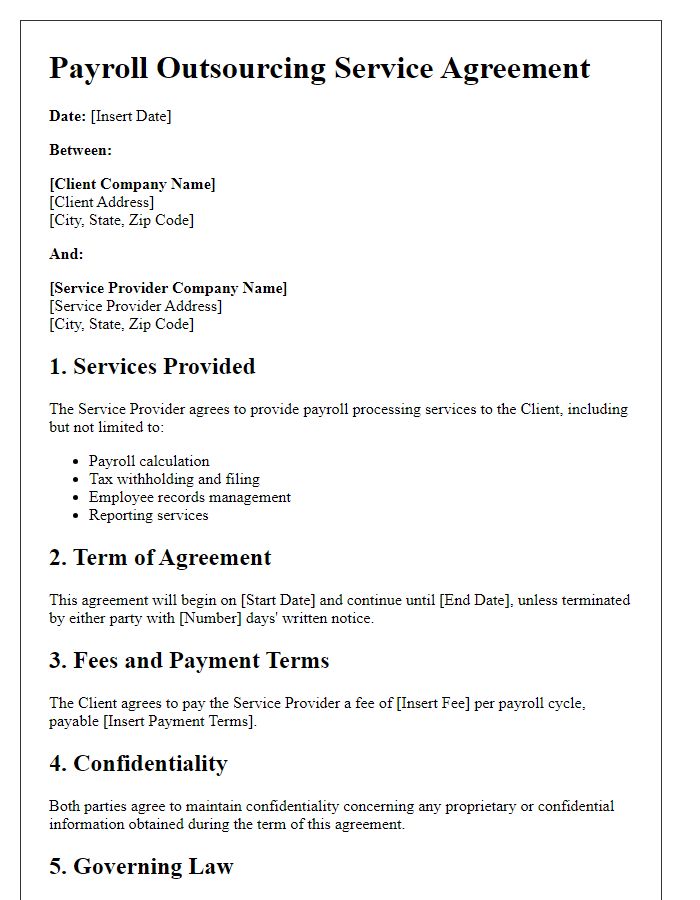
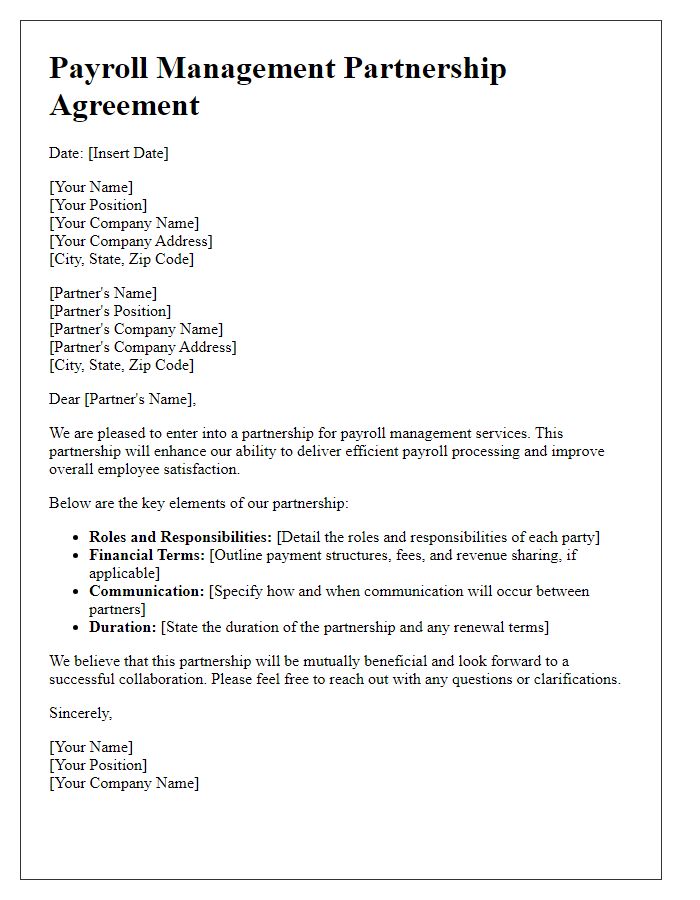
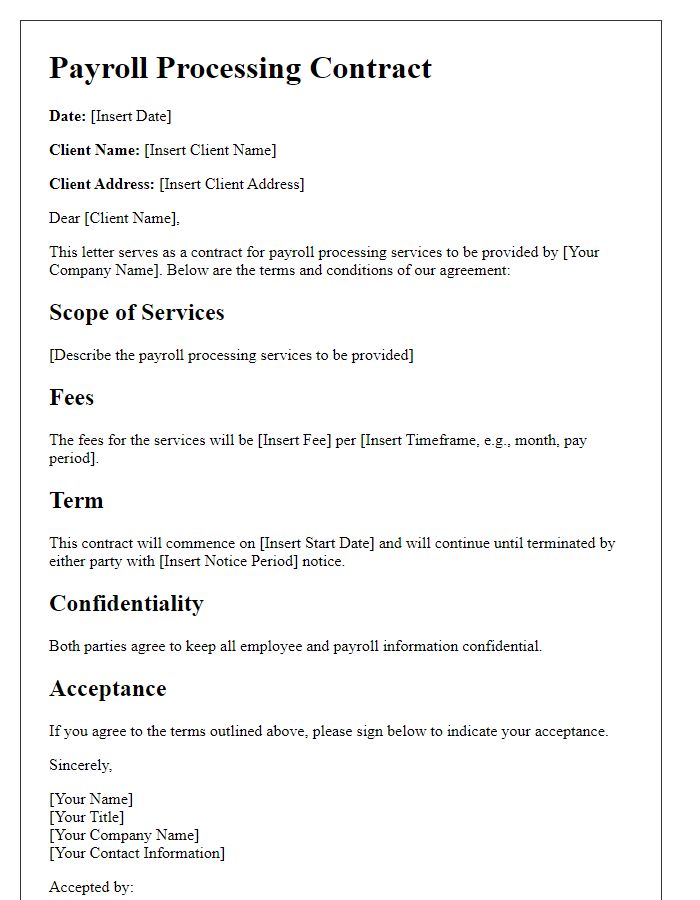
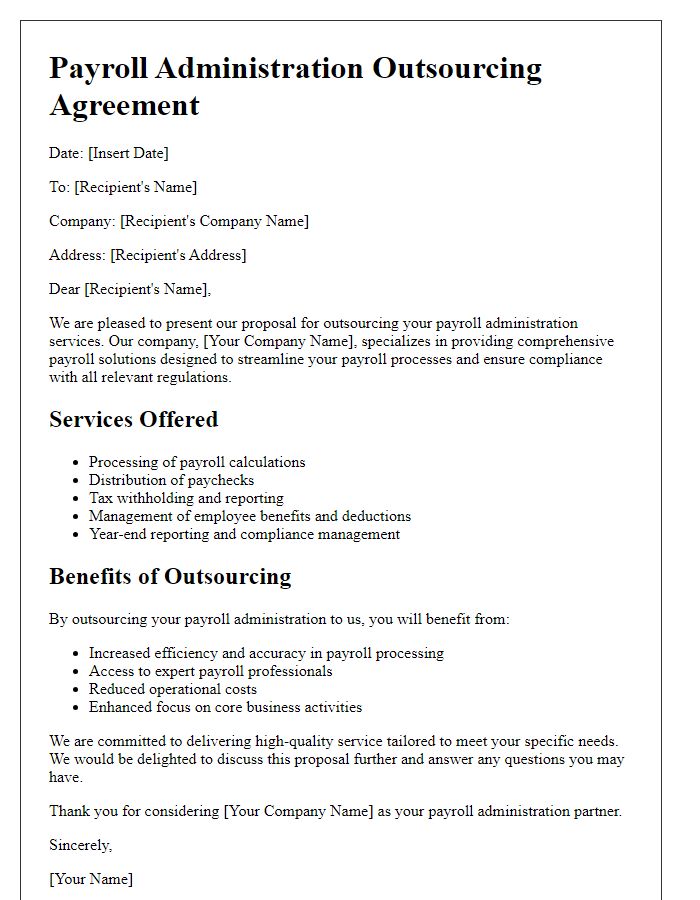
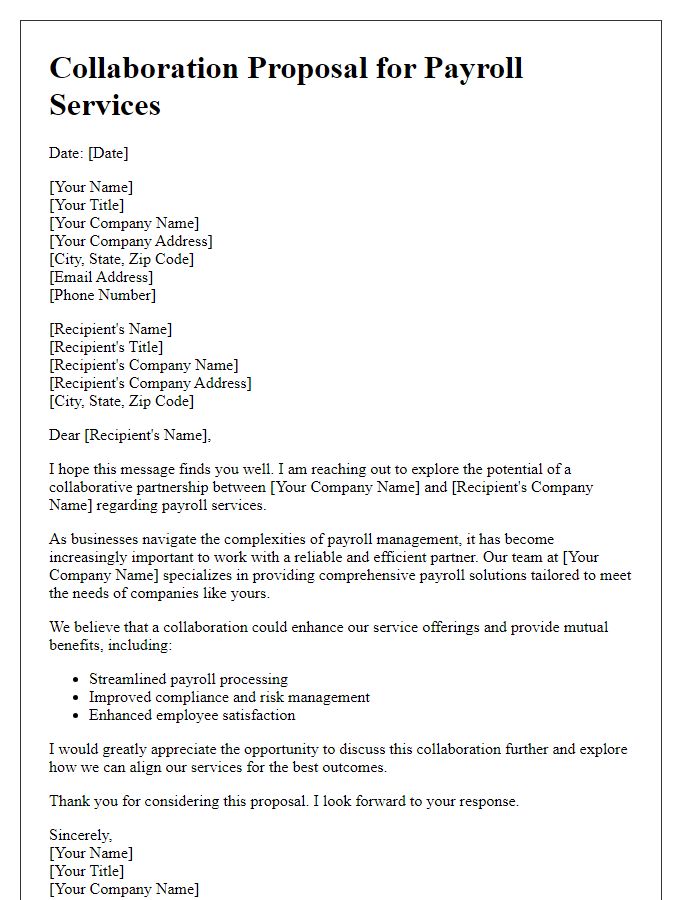
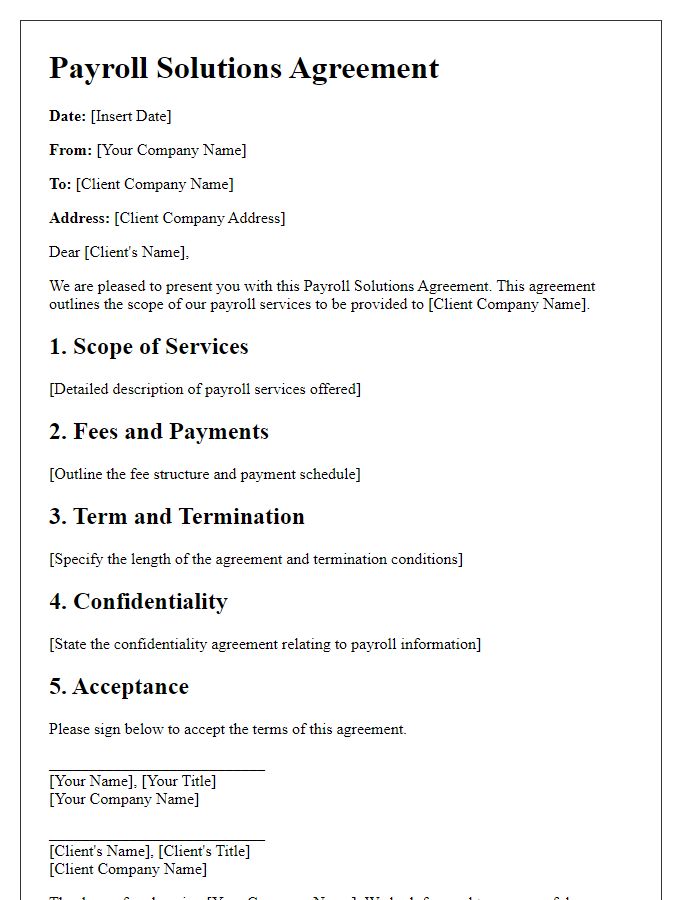
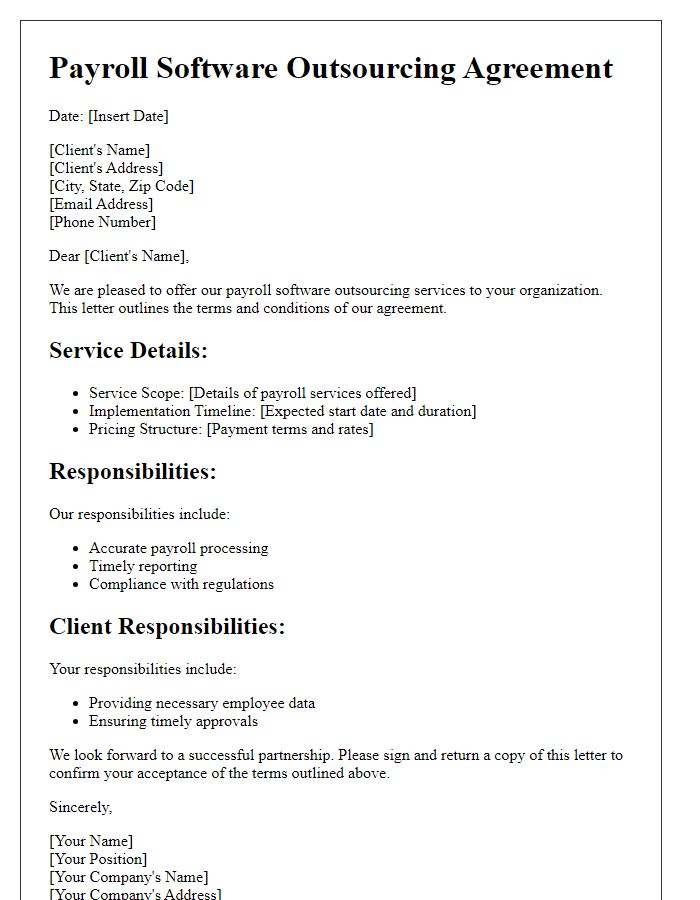
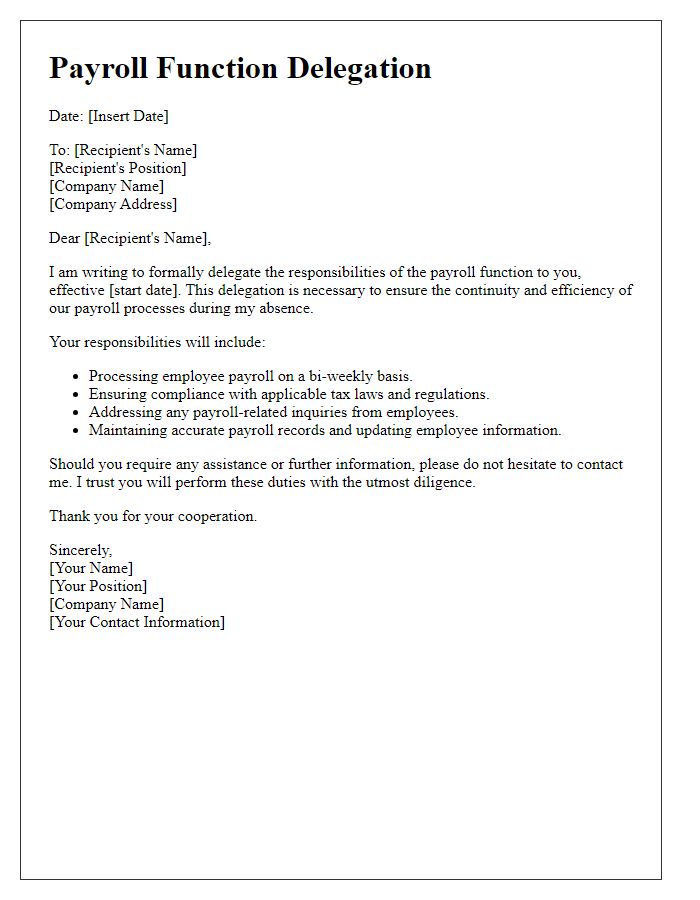
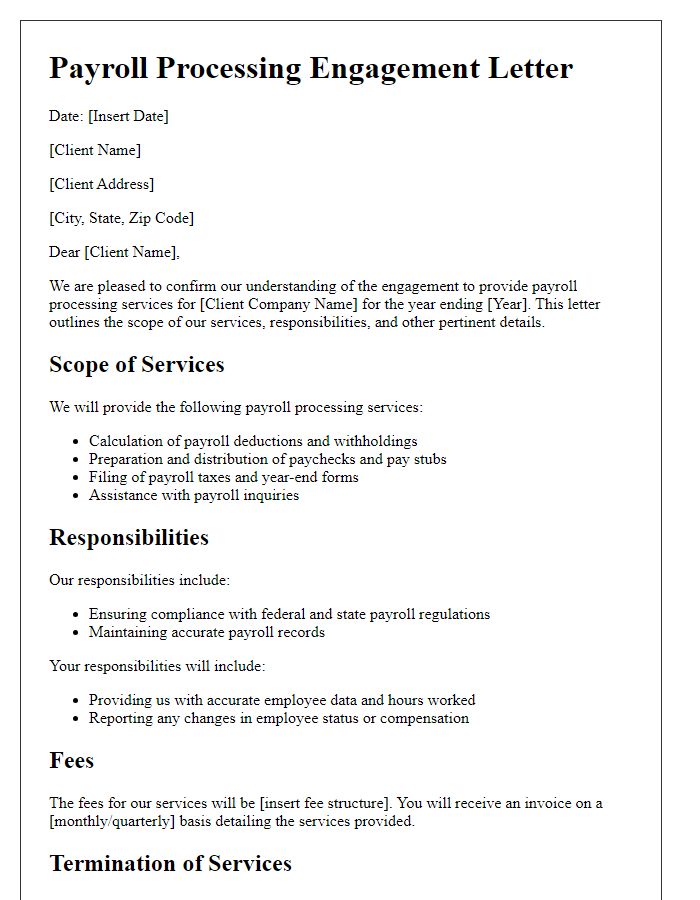
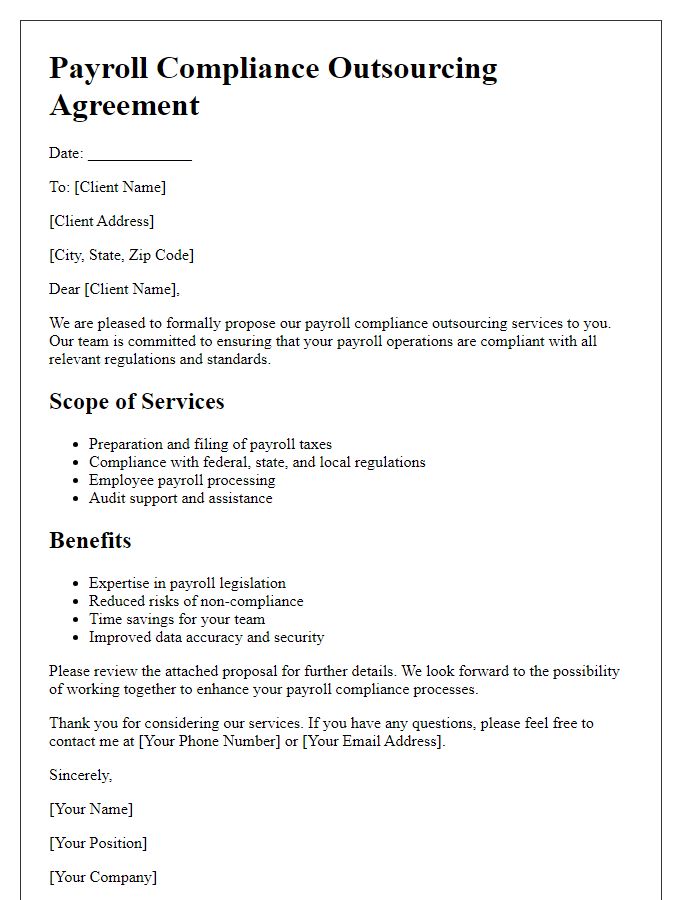


Comments